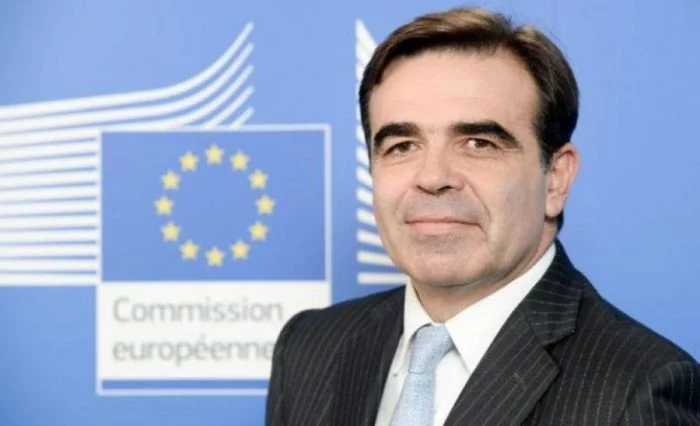Margaritis Schinas, Vice-President of the European Commission for Promoting the European Way of Life, has spoken highly of President Abdel Fattah El Sisi’s “Decent Life” initiative, calling it “distinguished” with “noble goals”.
Schinas, in an interview with MENA Monday, said that President of the European Commission Ursula von der Leyen had officially announced support for “Decent Life”, allocating 50 million euros for the Egyptian initiative.
Indeed, the “Decent Life” initiative has “noble” goals and aims to develop villages and rural areas, Schinas acknowledged.
Just like the EU, Egypt is “a peace project” and “a country that produces stability”, Schinas said, stressing that the two sides work to entrench peace.
Asked about his current visit to Egypt, the EU official said he is here to thank Cairo for its efforts to counter illegal immigration. The pan-European body will continue to morally and financially support this file, Schinas noted. Egypt is a major partner of the EU; one that plays a big role in managing the immigration file, he said.
During his three-day visit to Egypt, Schinas held talks with Egyptian officials on exchanging expertise in the field of industries.
During his three-day visit to Egypt, Vice-President of the European Commission for Promoting the European Way of Life Margaritis Schinas held high-level meetings with Egyptian officials, topped by Foreign Minister Sameh Shoukry. He was also received by Pope Tawadros II of Alexandria and Patriarch of St. Mark Diocese.
Schinas further told MENS that he will continue holding meetings in Cairo with a number of senior officials and government representatives before his visit to Alexandria. He underlined that he will also make a field visit to the project, funded by the European Union’s Asylum, Migration and Integration Fund (AMIF).
Regarding EU-Egypt cooperation, Schinas described Egypt-EU ties as “historically and culturally close”, stressing that Egypt plays a major role in achieving stability and security in the region, particularly in light of its key role in combating illegal immigration, organized crime and smuggling.
The EU official also lauded the great progress and development that has been achieved in Egypt in many important areas, including religious coexistence, interfaith dialogue and workers’ rights.
Replying to a question on efforts exerted by Egypt, under the leadership of President Abdel Fattah El Sisi, to support social rights and women’s rights, the EU official praised effective measures taken by Egypt in the field of women’s empowerment, stressing that the European Union is working on a number of projects in Egypt to support women.
Schinas also lauded Egypt’s efforts in combating terrorism, noting that counter-terrorism also includes fighting organized crime, smuggling and cybersecurity.
He reiterated the EU’s support of Egypt in the field of combating illegal immigration. He underlined that the EU, during its summit, which was held in Brussels on March 23-24, has allocated an additional 110 million euros to address the problems associated with migration and support migration management in this region of the world, expecting Egypt to get the lion’s share of this financial support.
He revealed that there is an initiative related to investment through European financial institutions, as 1.5 billion euros will be allocated, adding a “Talent Partnership” is currently being prepared.
Talking about cooperation between Egypt and the European Union, the EU official underlined that his talks with Foreign Minister Sameh Shoukry focused on investments in the energy sector, saying it is now time for Europe to turn the page with regard to energy as the continent relied for a long time on energy suppliers, who do not deserve its trust, and now it seeks to find alternative suppliers.
Egypt is a good and reliable supplier due to the geographic proximity, and it is a good alternative for projects of common European interest, particularly for Greece, Schinas said.
As for the European Union’s success in dealing with the refugee crisis triggered after the Russian-Ukrainian war, Schinas said that the European Union just ten days after the outbreak of the Russian-Ukrainian war, presented a package of measures to provide immediate protection status to about 6 million Ukrainian refugees who arrived in Europe.
The EU provided them with access to hospitals, schools and the labor market, he said, adding they succeeded in integrating into society and many of them returned voluntarily to their home country.
After more than a year since the outbreak of the Russian-Ukrainian crisis, the EU could confirm that its plan to deal with the crisis of millions of Ukrainian refugees has succeeded, Schinas stressed, deeming it a success story for Europe.






Discussion about this post